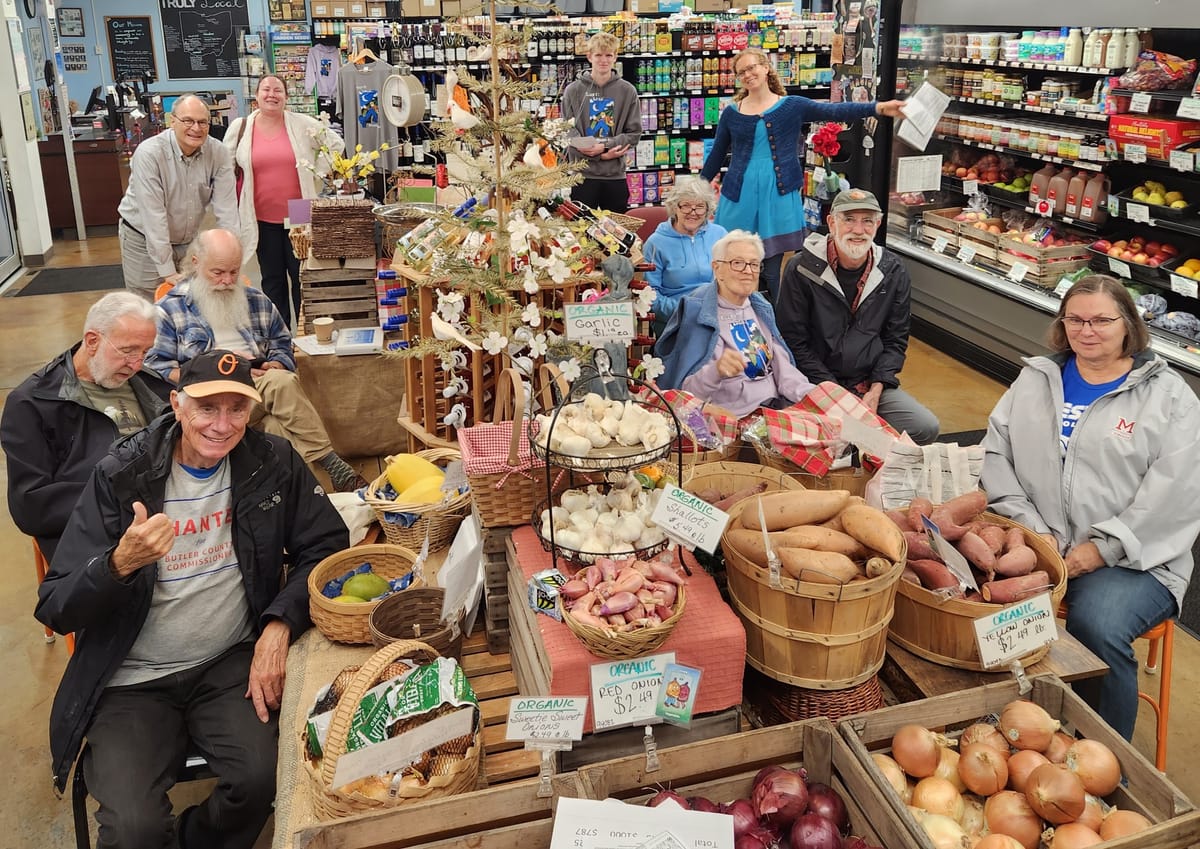MOON Co-op celebrates anniversary of opening and National Co-op Month
October is National Co-op Month, and Board President James Rubenstein writes that Oxford's local cooperative grocery store has been serving the Oxford community for 13 years.

October is National Co-op Month, as well as the anniversary of the opening of MOON Co-op 13 years ago. This seems a suitable moment to explain what makes co-ops different from other businesses in Oxford.
Co-ops come into existence when people decide to fill a gap in their community. For cooperatively owned groceries, two gaps are typical. Some communities are identified as food deserts because they have no grocery stores nearby. Gem City is a nearby example of a co-op grocery store that opened a few years ago in an underserved neighborhood of Dayton.
MOON Co-op is clearly not located in a food desert, but several hundred households came together to open the grocery store because they saw the nearby supermarkets as not providing local, organic, sustainable and other Earth-friendly products.
Scott Downing, the seventh generation apple grower profiled recently in this column, was a board member of MOON Co-op prior to the store’s opening. Small growers like Scott found it impossible to sell their produce in large supermarkets. Scott’s apples would have to be shipped to a warehouse out west, then a regional distribution center, then to storage at a supermarket. After hundreds of miles of shipping over dozens of weeks, his apples would have lost much of their flavor and nutritional value, and the supermarkets would have accepted only his “good looking” apples.
The international cooperative movement has encompassed a variety of business models since its founding in Great Britain two hundred years ago. The U.S. has had three waves of co-ops. First came during the 1930s, when cooperatives helped people escape the poverty of the Great Depression. Butler Rural Electric Cooperative is a local example of a 1930s-era co-op that brought electricity to rural areas that were not served by big city electric companies.
The second era of co-ops came in the 1970s and 1980s, when folks who had embraced counterculture lifestyles during the 1960s decided that they could better improve their lives and those of others by banding together to form cooperatives. The two co-ops cited below are examples from that era.
The third era is now, including MOON Co-op, as people decide that traditional forms of operating businesses weren’t meeting their needs or goals. MOON Co-op is now owned by 1,010 households, mostly living in or near Oxford.
Frontier, MOON Co-op’s principal source of herbs and spices, is an example of a distributors cooperative. Frontier Co-op procures its herbs and spices that are organically grown in fair working conditions and gets them to consumer co-ops like MOON.
Equal Exchange, MOON Co-op’s principal source of coffee and chocolate, is an example of a workers cooperative. The approximately 100 employees of Equal Exchange each own the same share of the company.
All cooperatives, including MOON, adhere to seven international principles. One of the seven principles is that co-ops help other co-ops. As a thriving co-op, Equal Exchange helps grower co-ops, primarily in northwestern South America, where coffee beans and cacao beans are grown organically with fair working conditions.
Equal Exchange also helps consumer-owned cooperatives, such as MOON. The coffee grinder and coffee maker in MOON Co-op are gifts from Equal Exchange. For Chocolate Meltdown, a fundraiser every January that benefits Oxford Community Arts Center and the Richard and Carole Cocks Art Museum, Equal Exchange donates a large amount of chocolate via MOON Co-op, thus contributing to the entire Oxford community.
James Rubenstein is president of the Board of Directors for the Oxford Free Press and professor emeritus of geography at Miami University.




